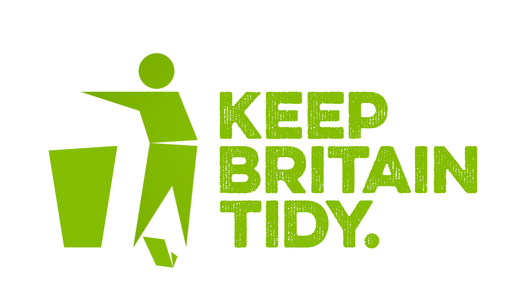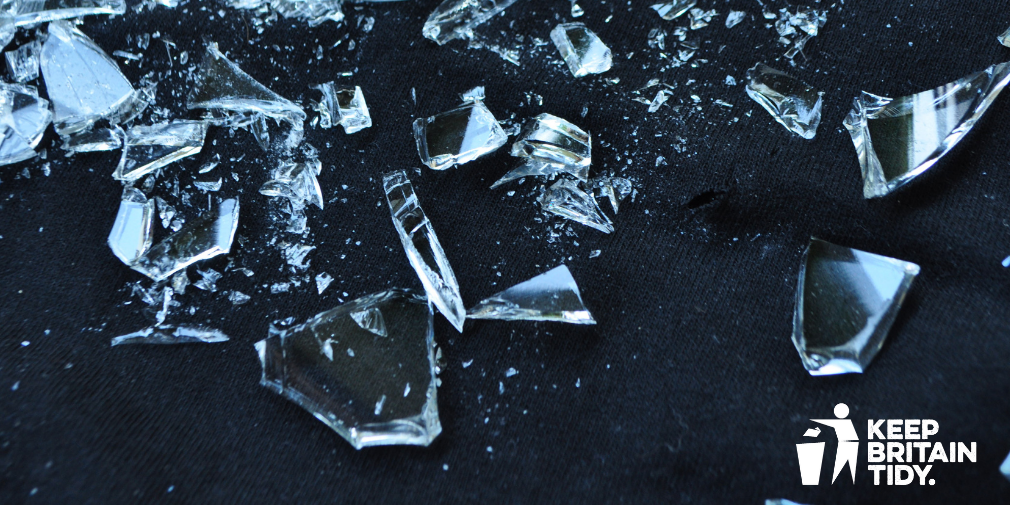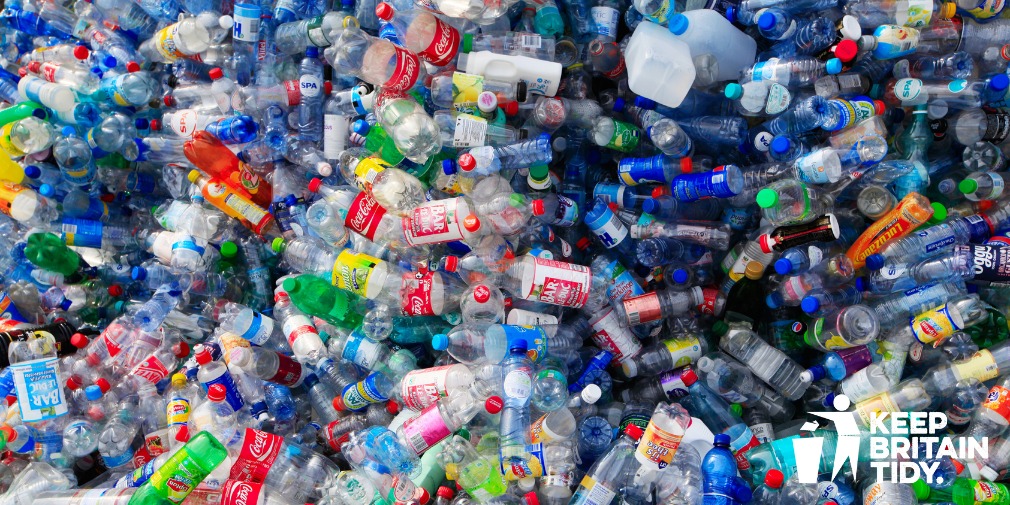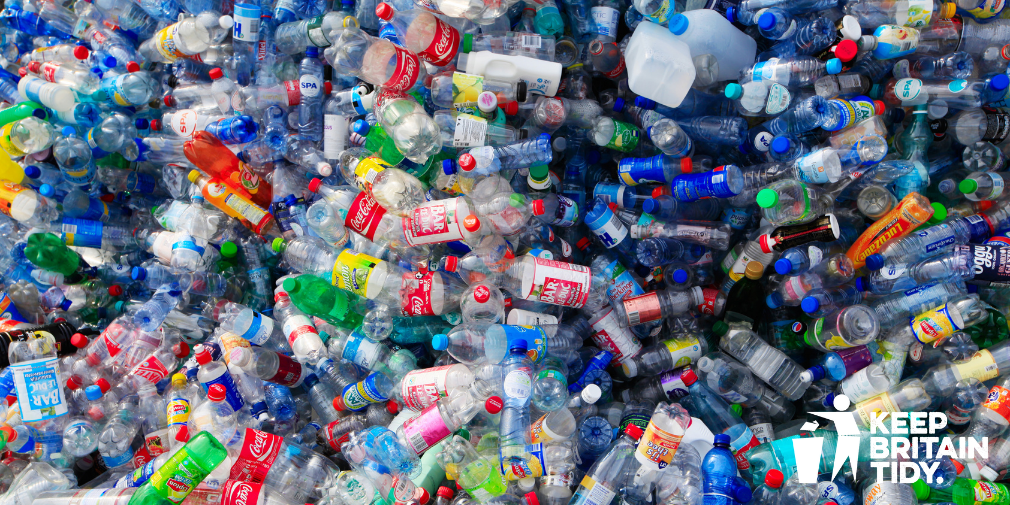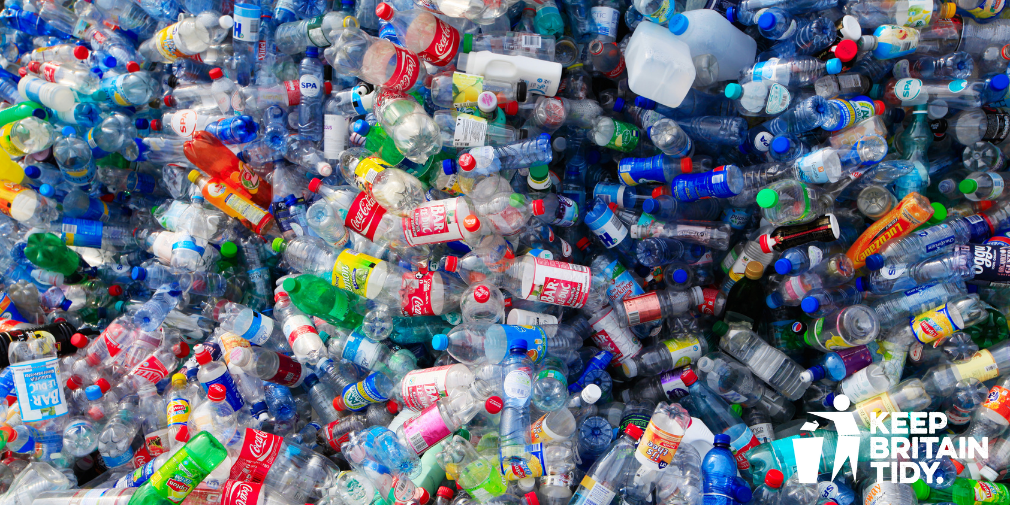
Deposit Return Scheme (DRS)
An all-in Deposit Return Scheme (DRS) is essential to Keep Britain Tidy’s plan to turn the rising tide on litter.
It is our chance to tackle the drinks litter that makes up more than 70% of litter by volume in this country at the same time as dramatically improving recycling - and all without leaving the taxpayer out of pocket.
The ground-breaking proposal, if designed correctly, will have a major impact on the drink packaging we use every day and the amount that gets littered - and we believe it could transform the way in which we collect and recycle our used drinks containers.
Along with plans for Extended Producer Responsibility (EPR) reforms*, DRS has huge potential to address the litter crisis and create a more circular economy, meaning that valuable materials and retrieved and reused rather than ending up in landfill.
Estimates suggest that over 8 billion drinks containers are wasted across the UK each year – meaning they are landfilled, incinerated or lost into our waterways – and Keep Britain Tidy’s National Litter Survey has demonstrated that, by volume, drinks containers make up 75% of the litter found on our streets.
It’s nothing short of a national disgrace that, each and every day, we are polluting our environment with the valuable and scarce plastic, aluminium and glass that we should in fact be capturing and re-using as valuable secondary material.
A well-designed Deposit Return Scheme performs exactly this function and we believe it should, as a minimum, capture plastic, aluminium and glass containers of all sizes, with a deposit of at least 20p to drive behaviour change and a ‘return to retail’ model, making it as easy to return a container for recycling as it is to buy the drink in the first place.
No other policy can boost recycling of a product to above 90% and reduce its littering by 85%, all with industry enthusiastically supporting it and agreeing to fund it.
Evidence from more than 40 other countries and regions around the world shows that these schemes work and suggest that, if we get DRS right, we should see collection rates for drink containers increase to well above 90%, producing clean material for recycling and preventing them from littering our streets and polluting our waterways and, ultimately, our oceans.
Unfortunately, this year Defra announced a further delay to the planned introduction of a deposit return scheme until October 2027.
In the last few years we have joined forces with a network of leading environmental organisations to respond to the public consultations – using our strong joint voice. You can read our responses below:
- Our response to the Defra consultation on a Deposit Return Scheme - as part of Wildlife and Countryside Link Network, June 2021
- Our response to the Defra consultation on the Waste Prevention Programme - as part of the Wildlife and Countryside Link Network, June 2021
We also wrote to the former Prime Minister Rishi Sunak as part of a coalition of leading environmental organisations including CPRE, Surfers Against Sewage, Marine Conservation Society and Greenpeace calling on him to introduce a UK-wide “all-in” Deposit Return Scheme for drinks containers.
*The plan for Extended Producer Responsibility (EPR) could also transform the way in which we tackle waste - you can read more here.
The difficult issue

Keep Britain Tidy remains fully supportive of a DRS scheme because the effort of this endless clean-up falls to our many thousands of #LitterHeroes volunteers, who work tirelessly to help to clear littered drinks packaging from our streets, parks and coastlines, as well as costing local authorities and other duty bodies, such as road and rail authorities, water authorities and national park authorities.
We are disappointed at the UK Government’s decision to exclude glass, which plagues our playgrounds, parks and beaches, from its proposed Deposit Return Scheme on the grounds of Health & Safety, stating in their consultation response that 'reverse vending machines will... carry safety risks associated with handling broken glass.
The weight of glass and the potential for breakages also poses consumer safety issues in transporting glass bottles to return points'.
At Keep Britain Tidy it is our view that the safety risks posed to the general public and to wildlife of smashed glass bottles remaining in the environment is a far greater safety risk than that to retailers trained to handle the material.
And if consumers are able to take glass away from supermarkets then surely they are able to return it and should be incentivised to do so through a Deposit Return Scheme.
When is DRS planned to start?

Defra previously proposed DRS in England should be delayed until at least the end of 2024, saying it was still reviewing responses to its 2021 consultation on the system.
But in 2024 it further postponed the introduction of the scheme to 2027 - a decision we believe is nothing short of disastrous for the environment.
This delay means oceans of bottles and cans will continue to needlessly pile up in bins and continue to be strewn on roadsides and in our green spaces, rather than being recycled.
As more authorities and organisations declare climate emergencies and as the impact of plastic pollution becomes ever more apparent, the need to change our consumption models and modify our lifestyles is becoming more urgent.
If we are serious about getting to grips with these issues, then early action is vital and these crucial interventions must not be delayed.
#PainintheGlass campaign

We believe the inconsistency across the nations will also create confusion for consumers, costs for producers, potential loopholes and cross-border issues.
Wales and Scotland will capture glass bottles in their DRS schemes, meaning that these environments will be kept cleaner and safer than those in England and Northern Ireland, where littered glass bottles will continue to pose a threat to humans and animals.
For this reason, in 2022 we launched the #PainintheGlass campaign to lead the call for glass to be reconsidered in the DRS reforms, and encouraging the public to write to their MP today to ask the Government urgently reconsiders including glass bottles in the upcoming Deposit Return Scheme (DRS) design.
